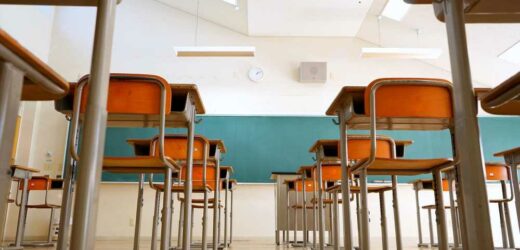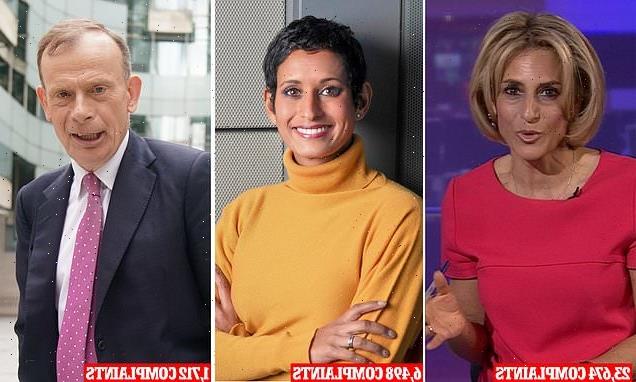More On:
schools
Biden believes children need to learn ‘challenging’ US history
Man shot dead, 3 people stabbed near preschool in France: report
CDC says schools should ‘prioritize’ fully reopening this fall
Parents who pledged $1.35M to Catholic school say it went ‘woke’ — and they want funds back
In an impressive exercise in not playing an idea out to its logical conclusion, some conservatives are pushing for a camera in every classroom across America.
This pristinely wrapped gift to the surveillance state comes under the guise of “transparency in the classroom” — parents keeping an eye on teachers, so they can’t covertly teach critical race theory (or other leftist ideas) to their kids. But proponents seem willfully ignorant of how technology is used today.
Tucker Carlson calls for cameras in classrooms to “oversee the people teaching your children, forming their minds.” Matt Walsh, on his Daily Wire podcast, suggests it to document “everything that teachers say to their students.”
Teachers naturally bristle at the idea, which may be the point. But there’s a bigger problem with this particular brand of helicopter parenting: A camera that picks up everything teachers say to their students would also capture what students are saying to their teachers — and to each other.
Full-time monitoring of teachers in the classroom means full-time monitoring of kids — and their not-yet-fully-formed frontal lobes — in all of their unsophisticated glory.
Anyone who’s ever spent a lengthy amount of time with a tween or teen (or been one) knows that they talk first, think later and barely give any consideration to the next hour, let alone the next decade. They often say and do stupid things, and the tendency seems to compound when they’re in groups.
If every parent has access to a live video feed of their children’s classroom, how long before a screen-recording of an eighth-grader making a poorly thought-out comment leaks online? How long before videos of interactions between middle-schoolers are fodder for think pieces and viral tweets?
How long before lives get ruined and careers get derailed before they even start?
In an age when kids already suffer the repercussions of online records of the minutiae of their daily lives from a young age, do we really want to take away the last bit of privacy they have left by allowing every second of their school day to be monitored?
The full fallout of huge blows to our freedom often isn’t plain until after they kick in, and they’re always promoted as being for our benefit. The sweeping Patriot Act, for example, vastly expanded the feds’ ability to surveil Americans without their knowledge and without showing reasonable suspicion or probable cause as demanded by the Fourth Amendment — all under the guise of “keeping us safe” on the heels of 9/11.
Here, the dangers are so painfully obvious that it’s mind-boggling that anyone concerned about cancel culture or society holding kids to adult standards of conduct would even consider it.
Children need time and space to grow, make mistakes, learn and form their opinions. An environment where their every utterance could have lifelong implications would suffocate that growth.
If parents really want insight into what’s going on in their kids’ classroom, they could employ the age-old tactic of talking to their children. Not as flashy, I know, but tried and true nonetheless — and a lot less effort than watching the video feed of their whole day.
Brooke Rogers is a member of The Post Editorial Board.
Share this article:
Source: Read Full Article


